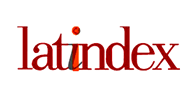The legitimization of the devaluation of leisure through the mechanisms of law
Keywords:
leisure, work, law, penaltyAbstract
The article aims to analyze the relationship and significance of our society towards leisure, which is often devalued and endowed with a pejorative charge, as well as analyzing work - from which leisure is constituted. Going through a philosophical and historical analysis, based on authors such as Michel Foucault and Domenico De Masi; in order to analyze the way in which this pejorative view of leisure was legitimized in Brazilian legislation through law since the Brazilian Empire. It also seeks to draw reflections on how much this mentality still permeates contemporaneity and, ultimately, until the Penal Reform of 1940.
References
BRASIL IMPÉRIO, Código Criminal do Império do Brazil annotado. Lei 16 de novembro de 1830, Art. 296. (TINOCO, Antônio L. F. História do Direito Brasileiro. Brasília: 2003.)
BRASIL, Lei das Contravenções Penais. Decreto-lei nº 3.688, de 03 de outubro de 1941. Disponível em: <https://presrepublica.jusbrasil.com.br/legislacao/110062/lei-das-contravencoes-penais-decreto-lei-3688-41#:~:text=Direito%20Penal-,Lei%20das%20Contravencoes%20Penais%20%2D%20Decreto%2Dlei%203688%2F41%20%7C,3%20de%20outubro%20de%201941&text=t%C3%B3pico%20(120%20documentos)-,Art.,ser%20dispensado%20o%20isolamento%20noturno>. Acesso em 05 de novembro de 2022.
BRASIL, Código Penal dos Estados Unidos do Brasil. Decreto nº 847, de 11 de outubro de 1890. Disponível em: <http://www.planalto.gov.br/ccivil_03/decreto/1851-1899/d847.htm>. Acesso em: 05 de novembro de 2022.
BRASIL, Lei de Execução Penal. Lei nº 7.210 de 11 de julho de 1984. Disponível em: http://www.planalto.gov.br/ccivil_03/leis/l7210.htm#:~:text=LEI%20N%C2%BA%207.210%2C%20DE%2011%20DE%20JULHO%20DE%201984.&text=Institui%20a%20Lei%20de%20Execu%C3%A7%C3%A3o%20Penal.&text=Art.,do%20condenado%20e%20do%20internado. Acesso em: 05 de novembro de 2022.
CASTEL, R. As metamorfoses da questão social: uma crônica do salário. Petrópolis: Editora Vozes, 1998.
COUTINHO, Aldacy Rachid. Trabalho e pena. Revista da Faculdade de Direito da UFPR. Paraná., v. 32, p.7-24, 1999.
DE MASI, Domenico; PALIERI, Maria Serena. O ócio criativo. 1° edição, Rio de Janeiro: Sextante, 2000.
FOUCAULT, Michel. (1975) Vigiar e Punir: história da violência nas prisões. 26º edição. Petrópolis: Vozes, 2002.
FOUCAULT, Michel.(1976) História da sexualidade I: A vontade de saber. 15 ed. Rio de Janeiro: Edições Graal, 2003.
GONÇALVES, Hebe Signorini; BRANDÃO, Eduardo Ponte (Ed.). Psicologia jurídica no Brasil. 3º edição, Rio de Janeiro: Nau Editora, 2011.
GORZ, André. Metamorfoses do trabalho. 1º edição, São Paulo: Annablume, 2003.
OMS - ORGANIZAÇÃO MUNDIAL DA SAÚDE. Notícias. Dia Mundial da Saúde 2017: Vamos falar sobre depressão e tuberculose. 2017. Disponível em: <https://www.who.int/news/item/07-04-2017-world-health-day-2017-let-s-talk-about-depression-and-tb> acesso no dia 16 de junho de 2022.
SANTOS, Adriana Cabral dos, et al. Vagabundos e criminosos: o trabalho como mecanismo de poder e índice de criminalização no discurso jurídico-penal de reinserção social dos apenados. tese (doutorado), Universidade Tecnológica Federal do Paraná.: Curitiba, 2016.
Downloads
Published
How to Cite
Issue
Section
License
Copyright (c) 2023 Rebeca Lima Andrade

This work is licensed under a Creative Commons Attribution 4.0 International License.
Authors who publish in this Journal agree to the following terms:
- Authors retain copyright and grant the Journal of Constitutional Research the right of first publication with the article simultaneously licensed under the Creative Commons - Attribution 4.0 International which allows sharing the work with recognition of the authors and its initial publication in this Journal.
- Authors are able to take on additional contracts separately, for non-exclusive distribution of the version of the paper published in this Journal (eg.: publishing in institutional repository or as a book), with a recognition of its initial publication in this Journal.
- Authors are allowed and encouraged to publish their work online (eg.: in institutional repositories or on their personal website) at any point before or during the submission process, as it can lead to productive exchanges, as well as increase the impact and the citation of the published work (see the Effect of Open Access).


















